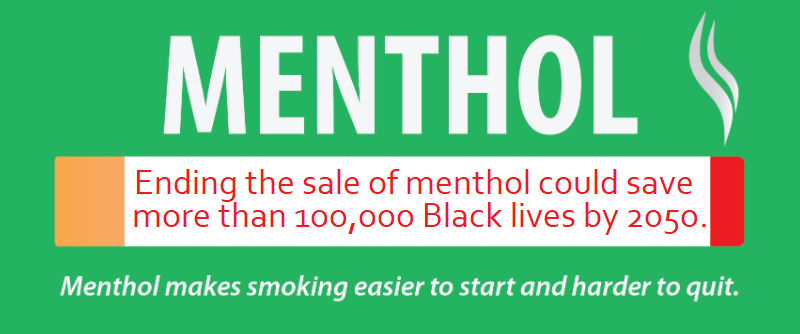
After decades of the tobacco industry marketing menthol to African Americans, we need look no further than our own local neighborhoods for evidence of their continued efforts. Capital District Tobacco-Free Communities collects data through tobacco retailer observations, telephone surveys, community conversations, and mapping to help determine what communities are at highest risk of exposure to tobacco marketing and to tobacco use in the Capital District. The consistent finding is that neighborhoods with a high percentage of low-income residents and residents of color tend to have:
- More tobacco retailers per capita
- More interior tobacco product advertising
- Lower prices and more advertising for menthol cigarettes
- Increased availability of inexpensive flavored cigars and cigarillos
- Higher smoking rates
These findings are not unique to our region and, in response, more than 100 communities stretching from California to New York have passed laws ending the sale of menthol-flavored tobacco products. In 2020, Massachusetts became the first state to end the sale of all flavored tobacco products, including menthol cigarettes. Soon after, California passed a similar law, although implementation has been delayed because of tobacco industry interference. Across the globe, several countries including the UK, and the European Union have ended the sale of menthol. The Food and Drug Administration has the authority to end the sale of menthol but has been slow to act.
In 2020, New York State banned the sale of flavored e-cigarettes including menthol, to stem the youth vaping epidemic. However, menthol cigarettes and flavored cigars and cigarillos, used disproportionately by African Americans, remain on store shelves. To learn more about what states and communities can do, visit our Capital District Communities Taking Action page.
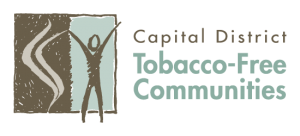
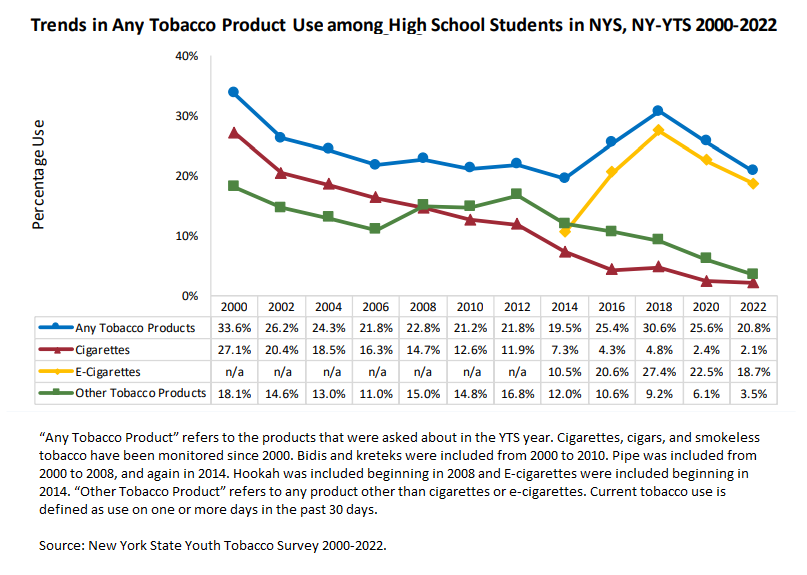
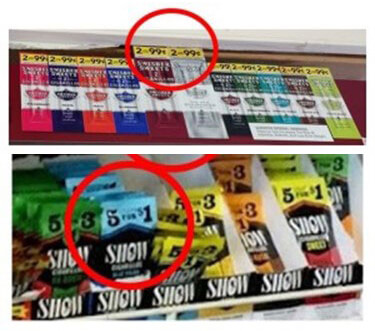
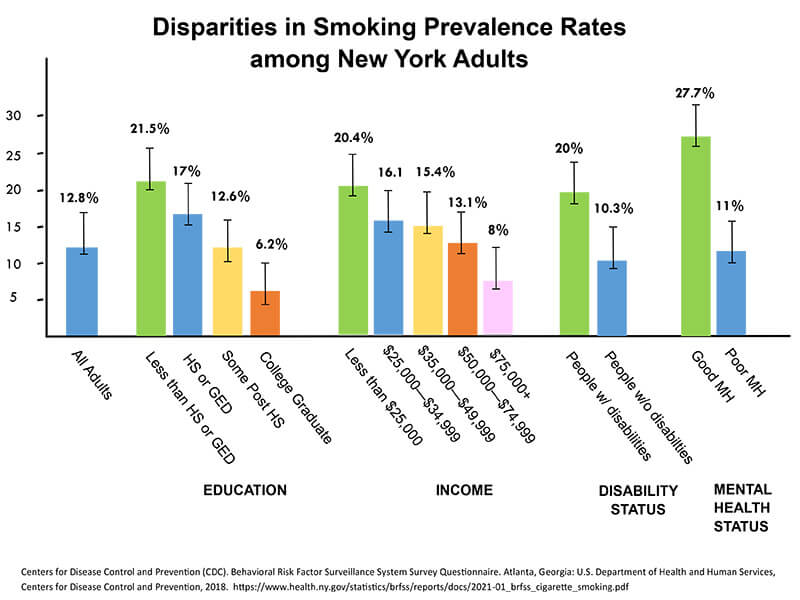
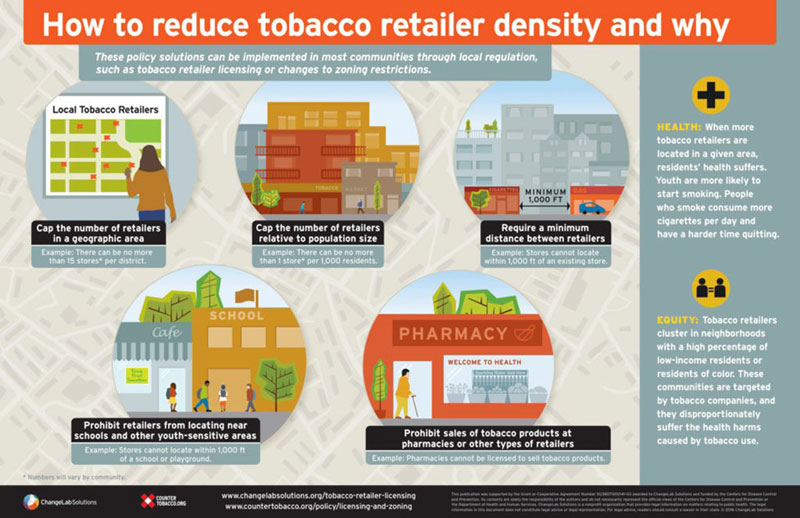
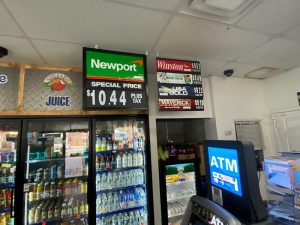
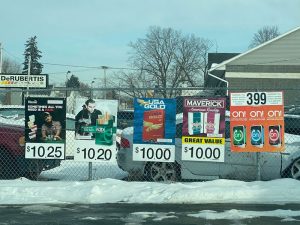
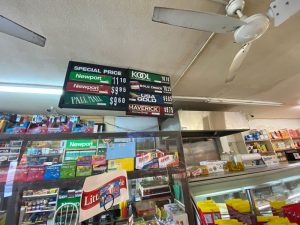
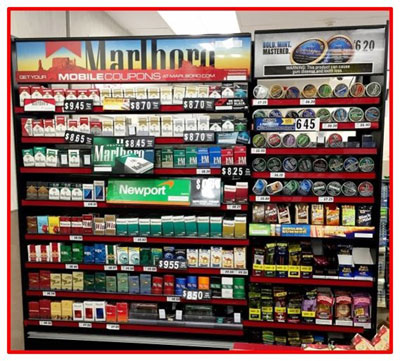 To the left is a typical tobacco product display. If you don’t use tobacco, you may not even notice, but kids do. Kids see. Kids notice. Kids remember. In fact, kids are more than twice as likely as adults to notice and remember retail tobacco marketing.
To the left is a typical tobacco product display. If you don’t use tobacco, you may not even notice, but kids do. Kids see. Kids notice. Kids remember. In fact, kids are more than twice as likely as adults to notice and remember retail tobacco marketing.